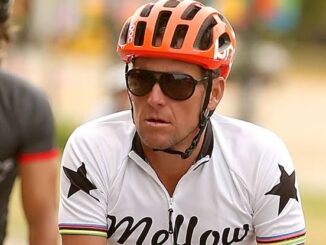Former Domestique Reveals Dark Side of Doping and Blood Transfusions in Cycling
- In a shocking revelation, a former domestique of Lance Armstrong has come forward to expose the hidden dangers of doping and blood transfusions that plagued professional cycling during the peak of Armstrong’s career. The former cyclist, who spoke anonymously to protect his identity, recounted the intense pressures and ethical dilemmas faced by riders who were often caught in a web of deceit and desperation.
The interview sheds light on a culture that prioritized winning at all costs, often leading athletes to resort to dangerous practices. “Everything was hidden and extremely dangerous,” the former domestique explained. He described how teams implemented rigorous methods to evade detection, including blood doping techniques that involved transfusing previously drawn blood back into an athlete’s system to enhance performance.
Armstrong, a seven-time Tour de France champion, was at the center of a massive doping scandal that ultimately led to his fall from grace. Although he denied doping for years, he later admitted to using performance-enhancing drugs throughout his career. The revelations from his former teammate paint a chilling picture of the environment that fostered such behaviors. “It was a system,” he noted. “Everyone knew, but nobody talked about it openly.”
The former domestique also detailed the psychological toll on athletes who participated in doping. Many felt trapped, knowing that to remain competitive, they had to conform to the culture of silence and risk. “You either went along with it or you were out,” he stated. The pressure to perform and the fear of losing sponsorships or team positions often overshadowed concerns for health and ethics.
As cycling continues to recover from the fallout of the Armstrong scandal, the conversation around doping remains critical. The revelations from the former domestique highlight the need for ongoing vigilance and reform in the sport. Efforts have been made by governing bodies to clean up cycling, with stricter anti-doping measures and a commitment to transparency. However, the shadow of the past still looms large.
The cycling community has expressed mixed reactions to the revelations, with some emphasizing the importance of accountability and others lamenting the loss of innocence in the sport. As athletes navigate the complex landscape of competition, the lessons learned from Armstrong’s era serve as a cautionary tale.
With calls for greater integrity in sports, the hope is that future generations of cyclists will benefit from a culture that values health and fairness over mere victory. The former domestique’s account is a stark reminder of the hidden dangers that can arise when the pursuit of success overshadows ethical considerations.


Be the first to comment